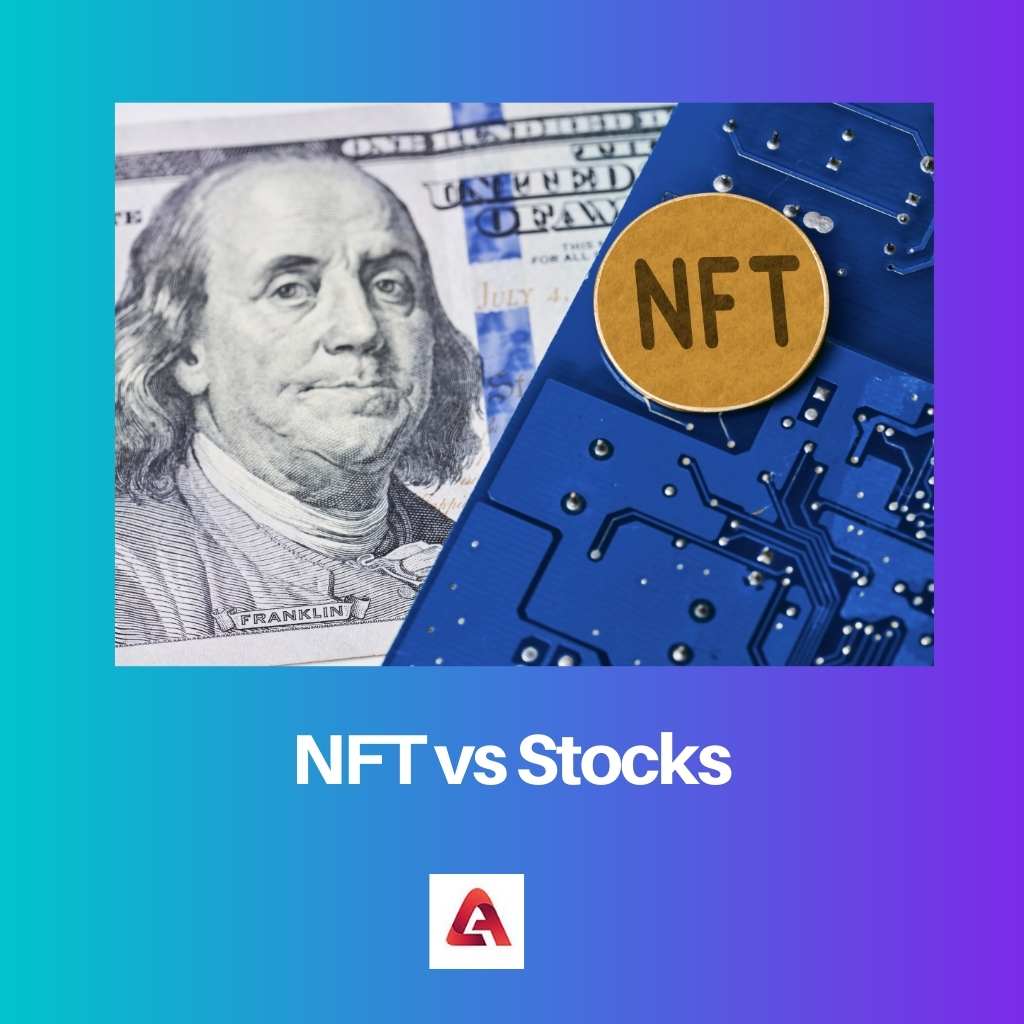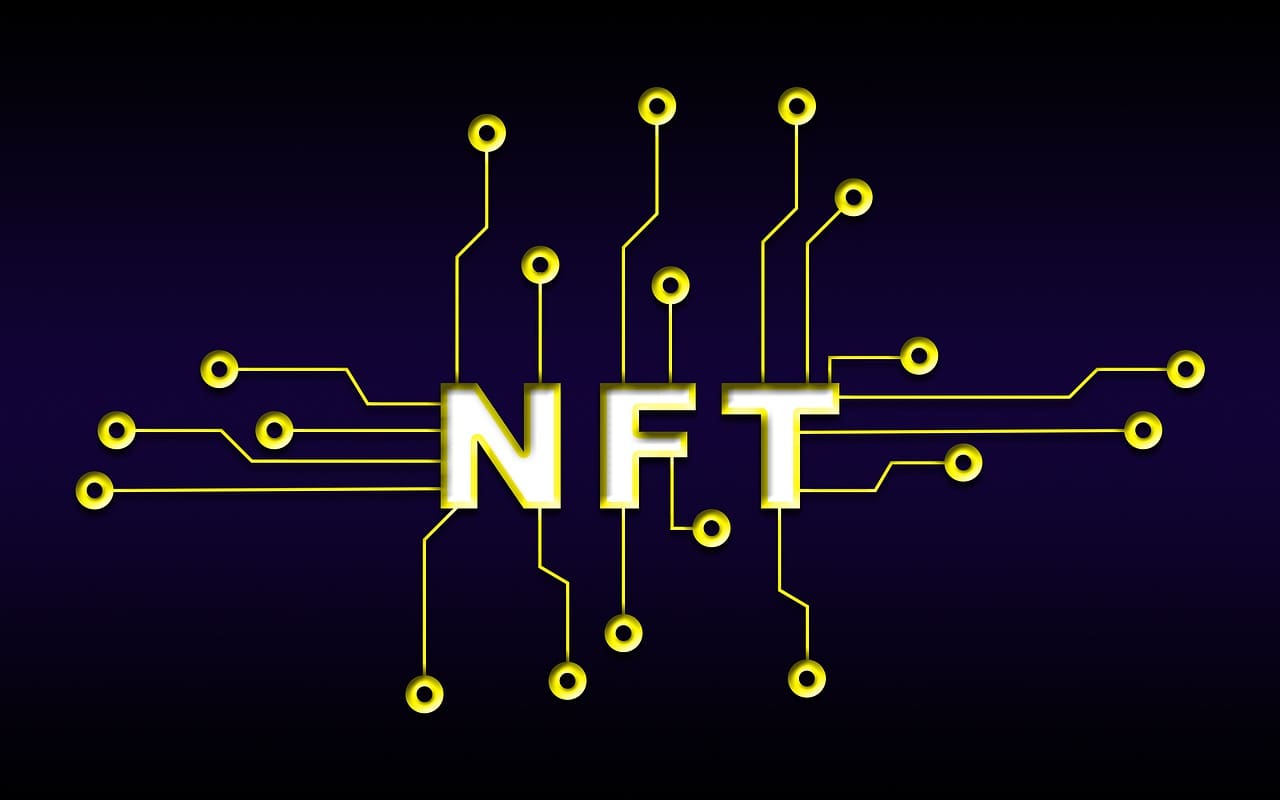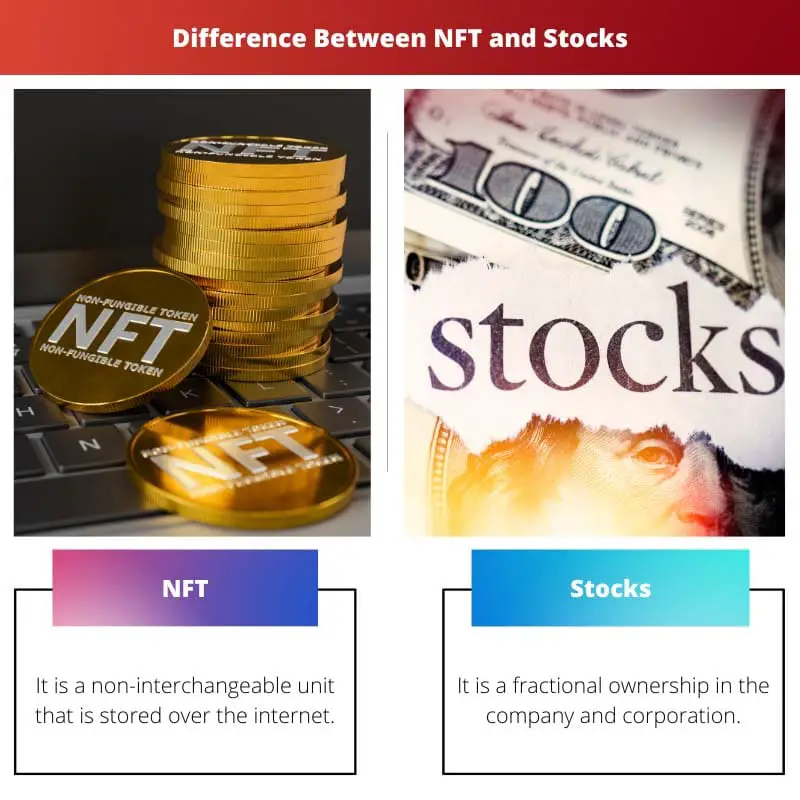With the passage of time, several things change, including a country’s economy, marketing strategy, and, most importantly, a country’s transition to digital currency.
They are known by a variety of names, including digital money, electronic money, and electronic currency.
It is money, or assets resembling money, that are primarily managed, stored, or exchanged in digital form in computers. This is widely circulated on the internet.
There are numerous types of digital currencies, including cryptocurrency, virtual currency, central bank digital currency, and many others.
Key Takeaways
- NFTs (non-fungible tokens) represent unique digital assets, while stocks represent ownership shares in a company.
- Stocks provide dividends and potential capital gains, whereas NFTs offer no inherent financial returns and rely on market demand for value appreciation.
- NFTs are traded on blockchain platforms, while stocks are traded on traditional stock exchanges.
NFT vs Stocks
NFT is a Non-fungible token that acts as a digital ledger on the blockchain network. It oversees the transfer of ownership of a digital asset. Stock is the financial shares of a company. Stockholders are sometimes referred to as shareholders because the stock is exchanged as shares.

NFT data is a non-interchangeable unit, and NFT data is stored as digital files. Photographs, films, and audio files are all examples of digital files.
Every token has its own unique identity. The NFT ledger is a book or group of books that keeps track of all transactions. The NFT is distinct from digital currencies, including blockchain cryptocurrencies such as bitcoin.
Stocks are also referred to as “capital stock” because they include all of the shares. Corporate or company ownership is divided on the basis of shares.
The derivative ownership of the company in the proportion of the total number of shares is described by a single share of stock. “Shareholders” or “stockholders” refer to people who own stock in a corporation.
Comparison Table
| Parameters of Comparison | NFT | Stocks |
|---|---|---|
| Meaning | It is a non-interchangeable unit that is stored over the internet. | It is a fractional ownership in the company and corporation. |
| Format | It is stored and traded in form of files or physical assets like images, audio, and videos. | Stock is traded in the form of shares. |
| Advantage | NFTs Can help diversify Your Investment Strategy | By investing in the stock the investor gets a good advantage of the economy. |
| Disadvantage | NFT do not contribute to the owner’s potential income. | Stocks have a risk of losing all your investment. |
| Types | There are nine different types of NFT art, music, video games items, trading cards, bug sports moments, memes, virtual fashion, domain names, | There are two types of stocks in which people invest common stock, and preferred stock. |
What is NFT?
The NFT stands for Non-Fungible Token, which is a digital file format that stores data such as photos, audio, images, and many other formats. These non-fungible tokens are one-of-a-kind.
The NFT ledge is a publically available proof of ownership (bundle of rights). The legal rights provided by the NFT are far from certain. Digital files can be shared and copied without limitation.
The NFT does not grant copyright to digital files that are stored as data.
They are considered speculative assets. It also contributes to the debate over the cost of energy and the carbon footprint (the overall sum of greenhouse gasses emitted by a single event or organization) based on blockchain transactions.
The NFT is based on a specific set of digital and physical assets, such as a file or a physical object. There is a specific licence required for using NFT in order to copy or display assets.
If the asset needs to be traded or sold, the NFT licence is critical. The term “NFT trading” refers to the impromptu exchange of possession with the asset. This type of exchange has no legal grounds for implementation.
The “Quantum” was the first NFT. In the month of May of 2014, two people named Kevin McCoy and Anil Dash founded the Quantum.
Jennifer McCoy, the McCoys’ wife, created the first quantum NFT video clip. The video was saved to the “Namecoin blockchain.”

What are Stocks?
In layman’s terms, stocks are called shares. It refers to a shareholder’s fractional ownership in a firm or corporation.
Shareholders can buy and sell their stocks under government laws and regulations, which helps to prevent fraud and safeguard investors, both of which are good for economic progress.
The stock can be sold, bought privately, or traded on a stock exchange. Other names for the stock exchange include the securities exchange and bourse.
It is a stock exchange where stockbrokers and dealers can buy and sell equities. Securities include stock shares, bonds, and other financial instruments. A “continuous auction” is how the stock exchange is referred to.
The stocks are deposited in an electronic format known as a Demat account, which is maintained by the depositories. There are two kinds of stock: common stock and preferred stock.
They are not the same as each other since the common stock has corporate equity ownership as well as voting rights that influence corporate decisions.
The preferred stock offers several benefits that the common stock does not. It has no voting rights, and preferred stock has a higher priority than common stock.

Main Differences Between NFT and Stocks
- Stocks are fractional ownership in a firm or corporation, whereas the NFT is a non-interchangeable unit maintained as data on a blockchain.
- NFT is a non-fungible token, which implies that each token has its own identity, whereas stocks are referred to as shares.
- To duplicate, utilise, or display tangible assets, NFT requires valid licencing. However, the shares can be sold or bought privately or through a stock exchange.
- Although the government does not have legal authority over the NFT, stock sales and purchases are conducted in accordance with established norms and regulations in order to avoid any form of fraud.
- The NFT is non-fungible, which means that each token is not equal to the next, whereas stocks are fungible, which means that the value of one unit is the same as the value of the next.

- https://onlinelibrary.wiley.com/doi/abs/10.1111/j.1475-679x.2005.00175.x
- https://link.springer.com/article/10.1007/s11104-011-0982-9
- https://papers.ssrn.com/sol3/papers.cfm?abstract_id=3914085
